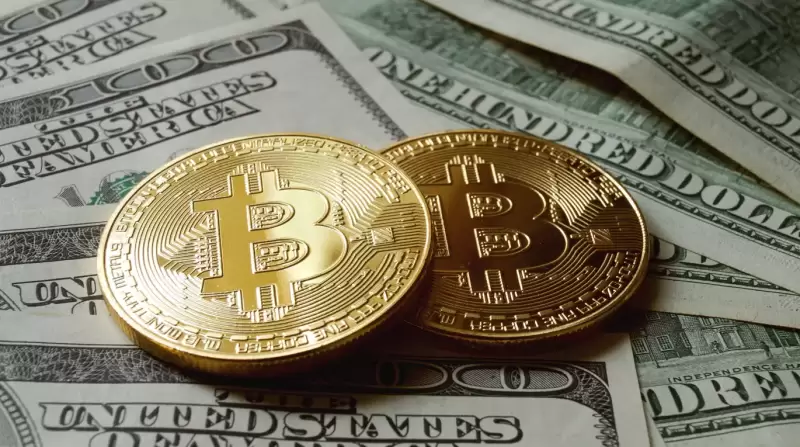 |
|
 |
|
 |
|
 |
|
 |
|
 |
|
 |
|
 |
|
 |
|
 |
|
 |
|
 |
|
 |
|
 |
|
 |
|
Cryptocurrency News Articles
Ethereum's Dencun Upgrade Heralds the 'Blobband' Era, Unleashing Scalability and Slashed Fees
Mar 27, 2024 at 03:10 pm
Ethereum's Dencun upgrade, a blend of "Deneb" and "Cancun," introduces off-chain data blobs to improve scalability. Blobs allow Layer 2 (L2) solutions like Optimism, Base, Arbitrum, and zkSync to store data off-chain, significantly reducing transaction fees on these networks. The upgrade also features eight other EIPs that enhance network functions, such as improved communication between Ethereum's execution and consensus layers and transient storage for Uniswap version 4. Proto-Danksharding, a key component of the Dencun upgrade, addresses data availability issues by removing bulky data from the blockchain and into blobs. This allows L2s to scale execution without incurring exorbitant storage costs, leading to an expected 90% decrease in transaction costs on L2 solutions.

Ethereum's Dencun Upgrade: Ushering in the 'Blobband' Era for Enhanced Scalability and Reduced Fees
Ethereum, the pioneering blockchain platform renowned for its focus on scalability, security, and decentralization, has been facing a surge in user adoption. This growth has exerted pressure on the network, leading to increased gas fees and highlighting scalability limitations.
To address these challenges, Ethereum developers have introduced a suite of upgrades, culminating in the Dencun update of March 13, 2024. This significant upgrade incorporates proto-danksharding, facilitated by EIP-4844, which introduces off-chain "data-blobs." These blobs dramatically reduce the cost of storing transaction data, primarily benefiting Layer 2 (L2) networks.
The Dencun Effect: A Surge in Scalability, a Drop in Fees
The Dencun upgrade, combining elements from the Cancun and Deneb updates, has invigorated Ethereum's scalability and efficiency. Data from popular L2 solutions reveals substantial reductions in average transaction fees. Optimism's fees plummeted to $0.05, Base to $0.064, Arbitrum to $0.5, and zkSync Era to $0.16.
The Power of Blobs: Reducing Data Storage Costs
Proto-danksharding introduces Binary Large Objects (blobs), allowing for the attachment of sizable data chunks to standard transactions. Unlike conventional call data, blobs store data off-chain, becoming inaccessible after three weeks. This innovation significantly reduces the cost of storing transaction data for L2 rollups.
Rollups, which process transactions off the Ethereum main chain and consolidate them into one transaction before submission, have embraced the use of blobs. By storing data in blobs instead of costly call data, they can significantly reduce transaction processing expenses.
The Blob Effect: Making Rollups More Accessible
The introduction of blobs has garnered widespread support, with industry experts predicting a potential 90% decrease in transaction costs on L2 solutions. Vitalik Buterin, Ethereum's co-founder, estimates that a 125 kb of call data, which currently costs around 0.06 ETH ($222), could be reduced to 0.001 ETH ($3.7) with the use of blobs.
Beyond Rollups: Potential Benefits for Mainnet
While the Dencun upgrade primarily targets L2 rollups, it could also contribute to fee reduction on the Ethereum mainnet. As L2s alleviate some of the transaction load from the mainnet, congestion should decrease, resulting in lower gas fees for mainnet transactions.
The 'Blobband' Era: A Paradigm Shift in Ethereum's Evolution
The introduction of blobs parallels the evolution of the World Wide Web from its sluggish dial-up days to the high-speed broadband era. Blobs address the persistent issue of data availability, allowing Ethereum to scale execution and data availability separately.
Similar to broadband's revolution of the internet, blobs are poised to revolutionize Ethereum by enhancing data availability. Instead of storing transaction data indefinitely on every node, rollups using proto-danksharding can reference data stored in blobs, reducing storage costs and improving scalability.
How Blobs Keep Ethereum's Traffic Moving
Blobs can be likened to high-speed buses for Ethereum's data, efficiently transporting large volumes across the network. They keep the main network free for everyday transactions and smart contract executions, preventing congestion and ensuring smoother operations.
Benefits for Developers, Users, and Validators
The Dencun upgrade and blob implementation empower developers to create more intricate smart contracts without prohibitive gas costs. Users enjoy reduced fees, increasing accessibility of L2-based applications. Validators benefit from optimized disk space usage, as blobs are pruned after approximately two weeks.
Blob Pricing Dynamics: A New Market for Data
EIP-4844 introduces a new fee marketplace for blobs, decoupled from the main Ethereum fee structure. This ensures that blob fees remain low even during periods of network congestion. However, it adds a layer of complexity for L2 operators, who must choose the most cost-effective fee mechanism based on prevailing network conditions.
Conclusion: A Giant Leap for Ethereum
The Dencun update, bringing together the Cancun and Deneb upgrades, is the most significant Ethereum update since the Shapella upgrade in April 2023, which enabled the unstaking of Ether from the Beacon Chain. EIP-4844 is a major stride in Ethereum's pursuit of scalability and reduced transaction costs, significantly enhancing the user experience and making dApps more accessible.
As blobs gain traction, Ethereum should witness reduced congestion, freeing up space for other transactions. This transition marks a shift away from storing a complete record of all data, but introduces a new era of efficiency and scalability for the Ethereum ecosystem.
Disclaimer:info@kdj.com
The information provided is not trading advice. kdj.com does not assume any responsibility for any investments made based on the information provided in this article. Cryptocurrencies are highly volatile and it is highly recommended that you invest with caution after thorough research!
If you believe that the content used on this website infringes your copyright, please contact us immediately (info@kdj.com) and we will delete it promptly.
-

-

-

-

-

- Bitcoin (BTC) Price Dances Between $74,000 and $83,000 as Global Macroeconomic Uncertainty Grips the Market
- Apr 13, 2025 at 06:45 am
- Over the past few weeks, the cryptocurrency market has been overwhelmed by a high degree of uncertainty and volatility triggered by the constantly shifting global macroeconomics.
-

-

-

-





























































